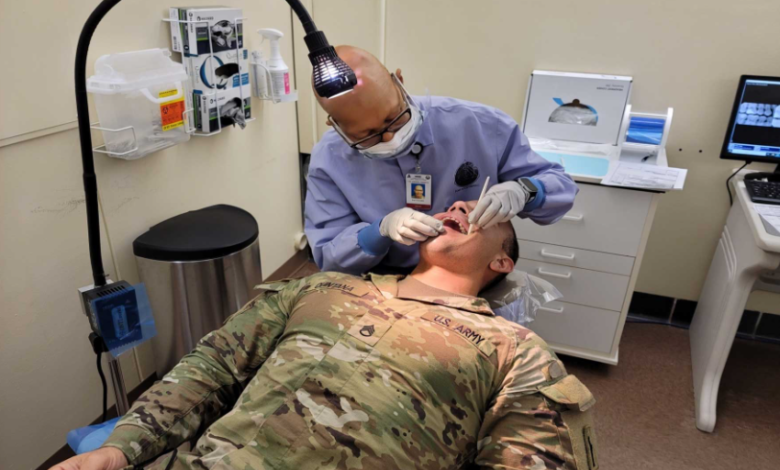Smart Dental Health Strategies for Military Retirees and Their Families

Key Takeaways
- Dental care remains a critical aspect of overall health for military retirees and their families.
- Practical steps can make dental coverage affordable and accessible for those transitioning from active service.
- Being proactive with oral hygiene and using available resources can prevent costly dental problems.
- Recent policy changes could expand dental benefits for veterans and their families.
- Simple, everyday habits can make a powerful difference in dental health.
Why Dental Health Matters After Military Service
For military retirees and their families, transitioning to civilian life often brings new challenges and priorities. Amid the numerous administrative changes and lifestyle adjustments that come with leaving active duty, dental health can become a lower priority, even though it remains integral to overall wellness and quality of life. Neglecting oral health after service can carry serious long-term ramifications, including a greater risk of heart disease, infections, and complications with chronic conditions like diabetes. In addition, poor dental health has ties to self-confidence and mental health issues that can already be prevalent during the transition period.
Securing steady, reliable dental coverage is one of the most immediate concerns after leaving active duty. Unlike during military service, retirees and their families must often shop for private or government-backed plans. The VA dental insurance program is designed to help veterans and their families maintain dental care access without disruption. Exploring these options sooner rather than later can prevent harmful lapses in care and protect long-term health.
See also: High-tech innovations making cargo inspections faster and safer
Challenges Faced by Military Retirees in Dental Care
Military retirees face several common obstacles when it comes to oral health. First, changing TRICARE-covered care to civilian dental insurance often comes with new costs, unfamiliar paperwork, and a dizzying array of options. Many discover dental premiums and out-of-pocket costs can quickly add up, especially for families with higher dental needs or pre-existing conditions. In addition, the military lifestyle often involves frequent relocations, making it difficult to establish relationships with local dental care providers. This lack of continuity sometimes delays routine check-ups and makes individuals less likely to seek treatment when issues arise.
Insurance literacy is another challenge—understanding the nuances of different dental plans, from monthly premiums to coverage maximums and preferred provider organizations, can feel overwhelming. Years of relying on military-provided healthcare may leave some families with limited experience navigating civilian providers and insurance networks. As a result, it’s easy to become discouraged and avoid dealing with problems until they become emergencies, leading to more expensive and complicated procedures.
Top Strategies for Affordable Dental Coverage
- Seek Out Transparent Plan Options: When shopping for dental insurance, prioritize plans that explain premiums, co-pays, covered services and network size in straightforward language. Understanding your plan upfront enables smarter budgeting and fewer financial surprises if treatment needs pop up unexpectedly.
- Compare Preventive and Major Coverage: Examine how plans handle basic preventive services (cleanings, exams, x-rays) and more extensive procedures (root canals, crowns, bridges, or dentures). The ideal plan will provide robust coverage for preventive care while still offering some protection against higher-cost needs, since preventive services lower your risk of needing major work later.
- Tap into Federal Programs: Many military retirees are eligible for federal dental benefit programs, including those available through the VA and the Federal Employees Dental and Vision Insurance Program (FEDVIP). Confirm your eligibility, review what’s included, and decide if supplemental or alternative insurance better fits your unique needs.
Building Daily Habits for Lasting Oral Health
Long-term oral health is rooted in everyday choices and consistent routines. Brushing twice daily with fluoride toothpaste is fundamental, but a thorough technique is equally essential—carefully cleaning every tooth surface for at least two minutes. Flossing once a day prevents plaque buildup between teeth and below the gumline, where toothbrush bristles can’t reach. These practices help reduce the risk of gum disease, prevent decay, and minimize expensive dental bills in the future. Even rinsing with water or chewing sugar-free gum after meals can enhance saliva flow and help wash away food debris and acids that damage enamel.
Diet is another essential aspect. Reducing sugary and acidic snacks and drinks limits the fuel for cavity-causing bacteria. Instead, choose nutrient-rich snacks like cheese, crunchy vegetables, or nuts, which support strong teeth and gums. Staying hydrated by drinking water, particularly fluoridated water, continuously washes away food particles and helps maintain an ideal pH in the mouth.
Using Tech and Tele-Dentistry to Stay on Track
Technology is creating more convenient ways for military retirees to stay on top of dental care, regardless of where they live or their physical mobility. Tele-dentistry platforms make it easier to consult with dental professionals remotely—whether for quick advice, second opinions, or even reviewing possible treatment plans before committing to an in-person appointment. This is especially beneficial for rural retirees or those with limited transportation. Digital apps designed for oral health can help remind you to brush, track your habits, and locate nearby dentists or dental specialists covered by your insurance, reducing missed appointments and helping maintain your preventive care schedule.
How Policy Changes Are Improving Dental Benefits
The landscape for veterans’ dental benefits is shifting, with recent legislation focusing on improved accessibility and affordability. The American Dental Association reports significant policy updates that could help thousands of military retirees and their families get better access to preventive and restorative care. These policy enhancements often include expanded eligibility for dental coverage, broader networks of dental professionals, and reduced out-of-pocket costs for complex procedures. Staying informed about these changes is vital—subscribing to updates from your insurer, local VA office, or professional groups can help ensure your family fully benefits from new opportunities as soon as they become available.
Tips for a Healthier Smile Throughout Retirement
- Brush and floss diligently every morning and evening, paying extra attention to areas that are easy to miss, such as the back molars.
- Replace your toothbrush every three to four months, or sooner if the bristles become frayed or worn, to ensure effective cleaning with each use.
- Avoid tobacco products, which increase the risk of gum disease and oral cancers. If you need help quitting, seek support from your primary care provider or dental professional. Sugar-free gum is a smart substitute for tobacco habits and also helps promote saliva production.
- Drink water regularly throughout the day, particularly after meals and snacks. Water helps neutralize acids, clear away food particles, and hydrate your mouth.
- Keep up with dental appointments even if you’re not experiencing pain or obvious problems. Early detection and professional cleaning prevent the most serious oral health issues and can save you time and money.
Preparing the Next Generation for Effective Dental Care
Military families often set strong examples for resilience and healthy routines. Pass these strengths on by teaching children and grandchildren the importance of proper brushing, flossing, and making nutritious food choices. Take young family members to your dental checkups so they learn firsthand that dental care is a normal part of health and nothing to fear. Establishing fun routines at home, such as singing a favorite song while brushing, and celebrating milestones like cavity-free visits, helps make oral hygiene engaging and memorable. Your positive influence helps younger generations develop good oral health habits that can last a lifetime—and may even empower them to share this knowledge with their peers as they grow.
Final Thoughts
Dental health is a lifelong commitment that does not end when military service concludes. By focusing on informed insurance choices, building smart daily habits, keeping up with new policy developments, and involving your whole family in oral health routines, you can confidently protect your smile and well-being for years. Robust dental hygiene stretches beyond the dental chair, fueling confidence, supporting overall wellness, and ensuring every chapter of military retirement is enjoyed with a bright and healthy smile.




